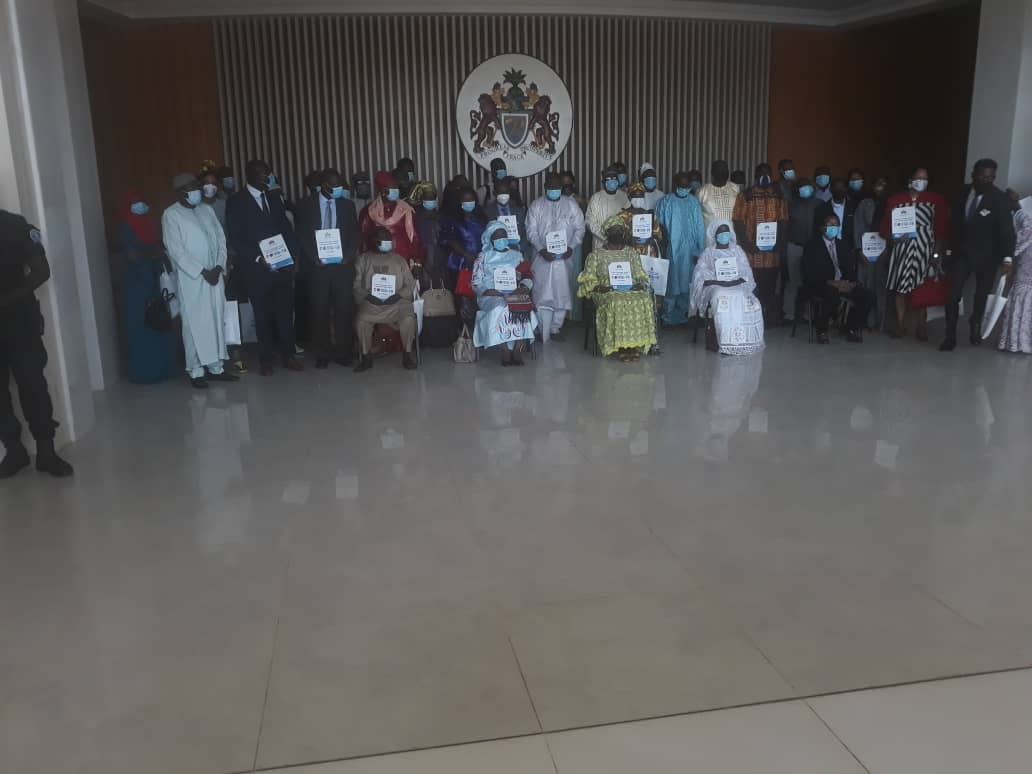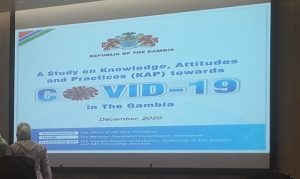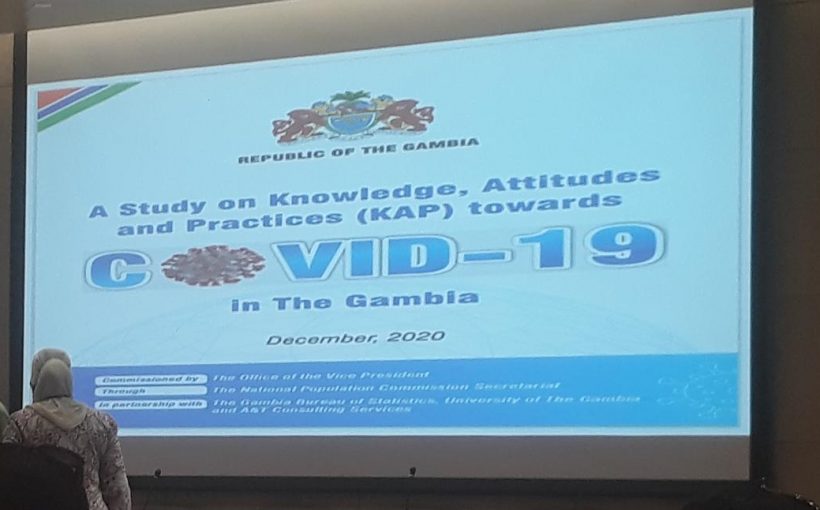By: Alieu Jallow

 The office of the vice of the President in collaboration with the National Population Secretariat on Tuesday 26th January 2021 launched the 2020 Covid-19 knowledge, attitude and practice report of the Gambia that was conducted in June 2020. The consultative meetings and findings came following the recording of the first case on 17th March 2020.
The office of the vice of the President in collaboration with the National Population Secretariat on Tuesday 26th January 2021 launched the 2020 Covid-19 knowledge, attitude and practice report of the Gambia that was conducted in June 2020. The consultative meetings and findings came following the recording of the first case on 17th March 2020.
The Gambia government took swift measures by closing boarders, suspending air flights, banning public gatherings, closure of unessential’s businesses, closure of all school categories and declaration of state of public health emergencies and night time curfews in order to curtail the surge of the virus.
Speaking at the ceremony, Vice President Dr. Isatou Touray indicated that Covid-19 has been the worst public health emergency of the 21st century and Gambia like any other country was not spared thus prompted the Government of The Gambia to apply various precautionary measures to contain the rapid spread of the deathly virus. She said Covid-19 still continues to pose a significant challenge in the country, especially with the recent discovery of the new contagious variant in various countries including the Gambia.
VP Touray indicated that it is in this wake that prompted her to commission the National Population Commission Secretariat in partnership with the University of the Gambia, GBOS and A&T consulting services to conduct the first ever nationwide study on knowledge, attitude and practice of people on the Covid-19.
“This report extensively evaluates the effectiveness of crosscutting evidence based intervention mechanisms that are critical in our continued fight against this deathly virus”, VP Touray said.
The Minster of Health Dr. Ahmadou Lamin Samateh said the virus has been unprecedented since its first discovery in the Chinese region of Wuyan. Dr. Samateh outlined that plans are underway to purchase the Covid-19 vaccines.
He told the gathering that the three confirmed cases of the new variant in the Gambia have been discharged.
The World Health Organization (WHO) representative Dr. Desta Alamarew Tiruneh said the severity of the new COVID-19 variant is yet to be discovered and therefore called on the government to continue educating the public on the health precaution measures.
Findings from the study reveal that nearly all (99%) of the respondents are aware of the virus. Most respondents have an average knowledge of COVID-19. Forty four per cent of the respondents were able to correctly name at least three signs and symptoms of COVID-19. Only about 27% of the respondents were able to correctly name at least four COVID-19 preventive measures.
The report put forward the following recommendations
(1) Disseminate COVID-19 information through radio, TV and social media. Radios and televisions should be more vibrantly used as the primary channels of disseminating COVID-19 information to both rural and urban audience.
(2) Intensify sensitization campaigns on COVID-19 signs and symptoms, modes of transmission and prevention measures to further strengthen peoples’ knowledge of the virus and how to protect themselves from infection.
(3) Intensify sensitization programmes in the local languages, targeting people with primary or no education to dispel commonly held misconceptions about COVID-19, such as the belief that COVID-19 does not affect children under 5, adolescents 15-24 years, people living in urban or rural areas or whether it only kills the elderly.
(4) Timely and regular update the population about new developments on the COVID-19 pandemic to avoid any complacency in peoples’ attitude and practices towards the virus.
(5) Scale up on Behavioural Change Communication (BCC) programmes to encourage people to adopt and maintain COVID-19 best practices such as avoiding handshakes, using face masks, practicing social distancing etc. in a bid to win the fight against COVID-19.
(6) Conduct sensitization programmes to dispel the fear of contracting the COVID-19 virus in hospitals/clinics/health facilities in order to encourage people to visit these centers to access essential health services.
(7) Clearly explain COVID-19 precautionary measures such as social distancing and regular hand washing to avoid ambiguity among people in the practice of these measures.
(8) The Government should help implement measures that will help minimize the spread of COVID19 in places where people feel at the greatest exposure to COVID-19 such as markets, public transports and places of worship.
(9) The Government should prioritize the provision of food stuffs, cash payments or transfers to households to support people during the COVID-19 SoPE. Other forms of support may include payment of electricity and water bills, rent and tax relief.
(10) The Government should sensitize the population about the importance of voluntary testing to encourage more people to come forward, especially in suspected cases to mitigate the spread of the virus.

